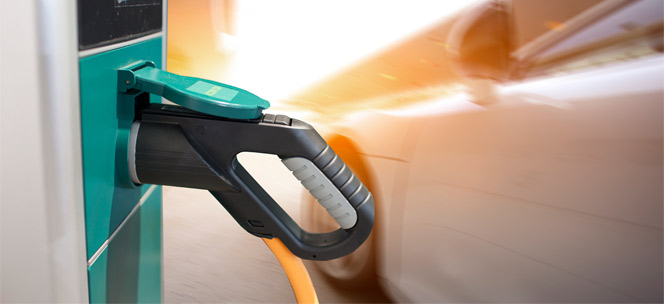Canada’s EV gamble looks even more foolish with Trump retaking the White House

Ottawa and Queen’s Park bet your farm on electric vehicles and the hand they’re playing looks worse every day.
Prime Minister Justin Trudeau and Premier Doug Ford teamed up to hand $57 billion in electric vehicle manufacturing subsidies to wealthy auto giants like Volkswagen, Stellantis, Honda and General Motors in recent years.
Betting on electric vehicles was always risky. With President-Elect Donald Trump about to retake the White House, the gamble now looks like a fool’s errand.
At every announcement, Trudeau and Ford patted each other on the back for funnelling billions of your cash to multinational corporations. According to the Laurel and Hardy of corporate welfare, handouts totalling $57 billion were good news for taxpayers.
At the Honda announcement, Ford gushed: “This deal is another example of our two governments working together to rebuild the economy.”
Rebuilding the economy?
Trudeau and Ford put billions of dollars on the line to coax automakers to build cars people aren’t buying.
The Ford Motor Company is losing $185,000 on every electric vehicle it sells. Yet Trudeau and Ford gave the auto giant $1.8 billion to retool an Ontario facility to build those very cars.
Economist Jack Mintz took a look at subsidies handed out in three of the biggest recent announcements: Volkswagen, Stellantis and Northvolt. The taxpayer tab was $35 billion. That means it’s costing $4 million for every job created.
Four million a job? On what planet does that equate with rebuilding the economy?
Plus, these companies aren’t leaders in the EV industry. Stellantis and Volkswagen have a combined market share of six per cent. Meanwhile, Tesla, which hasn’t cut a government deal, has 60 per cent.
If Trudeau and Ford’s gamble on the EV industry looked foolish before, Trump retaking the White House will take things from bad to worse.
Trump reportedly plans to do is end President Joe Biden’s $7,500 tax credit for Americans who buy an EV. The Trudeau government has a similar $5,000 rebate in place.
Telsa CEO Elon Musk says the move will be “devastating” to other EV manufacturers in the United States. The business models of these other companies rely on handouts to help convince weary Americans to buy expensive cars they don’t really want.
Given that 85 per cent of cars made in Canada are exported to the United States, if Trump does kill the EV tax credit, Canada’s already faltering EV industry is in for a world of hurt.
Sadly, a huge chunk of the money Ottawa and Queen’s Park promised to these auto giants can’t be clawed back. Yes, some of the production subsidies won’t be paid out if these corporations throw in the towel and stop producing EVs. But Canada’s politicians have spent billions paying for factories to be built and retooled to produce the very cars consumers don’t want.
General Motors lost $3.5 billion on EVs in 2023. Ford lost $7.7 billion.
More and more, Trudeau and Ford’s gamble looks like something your friend would bet on during a Vegas trip after a night of bottomless cocktails.
For the sake of taxpayers, it’s time to cut our losses.
Canada’s politicians should stop handing out taxpayer dollars to the EV industry – full stop.
Corporate welfare is never a good idea. It’s either given to companies that plan to build products anyway or to others who don’t have a business plan that works without a government handout.
In the first case, there’s no reason to spend taxpayers’ hard-earned money. In the latter case, spending that cash is bad business 101.
Like gamblers trying to win back their money, Ottawa and Queen’s Park will be tempted to throw more money at Canada’s EV industry if Trump starts to take the Biden handouts away.
That’s why taxpayers must demand Trudeau and Ford commit to ending EV corporate welfare.